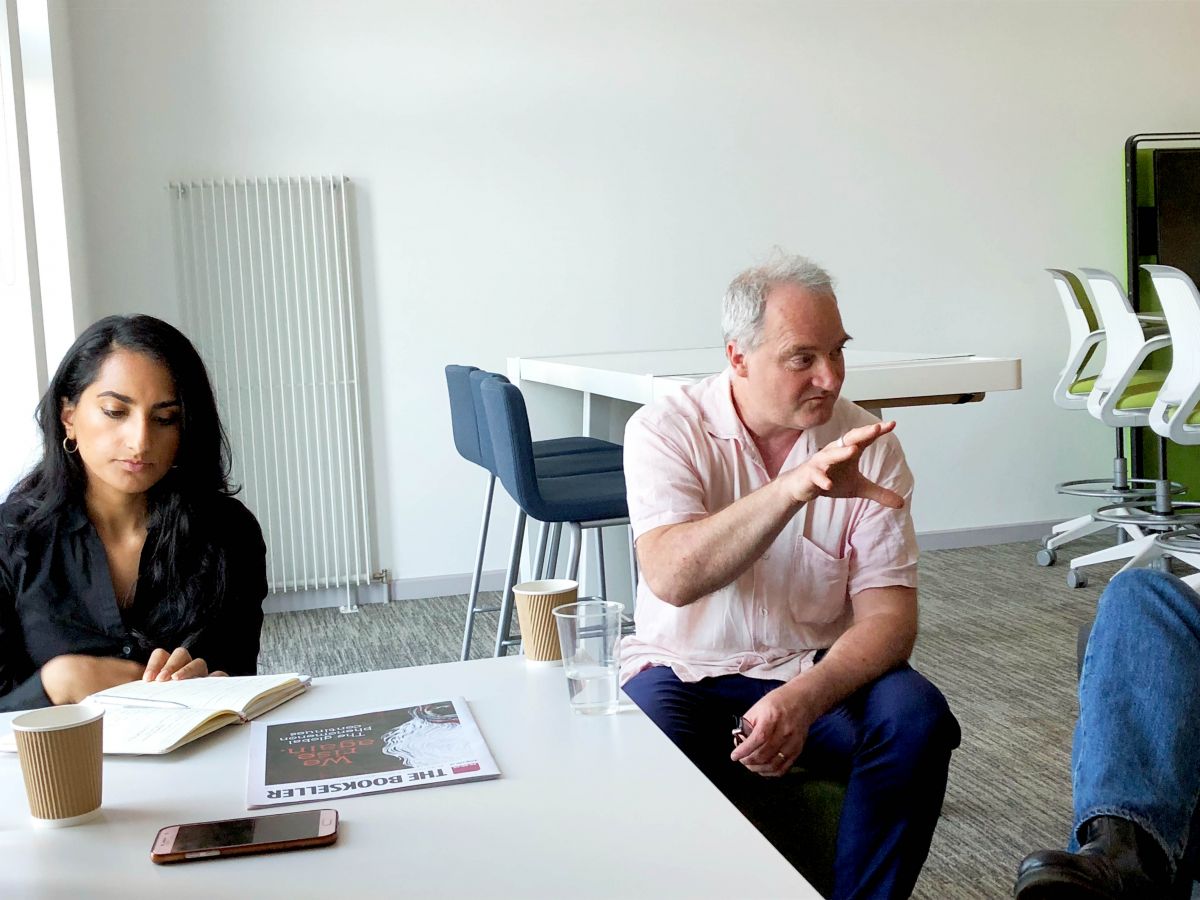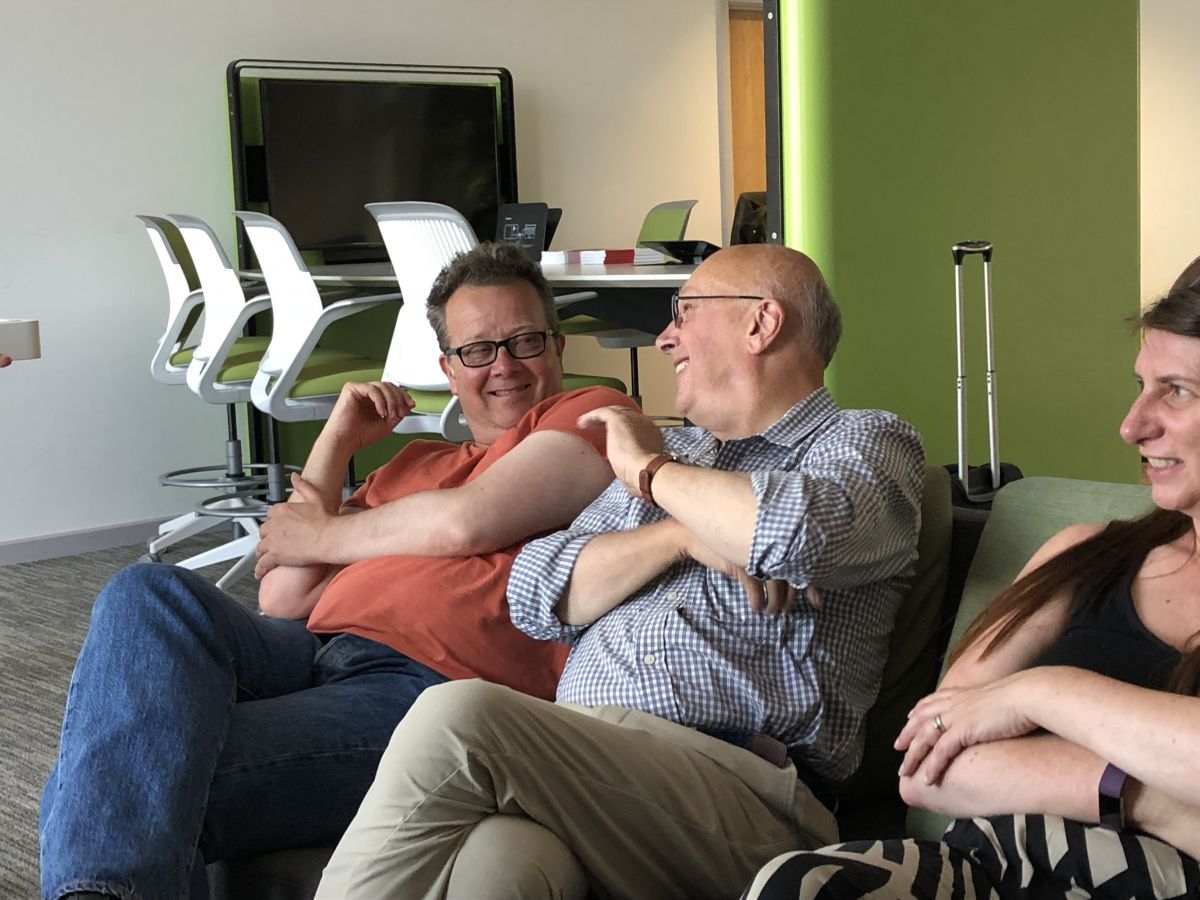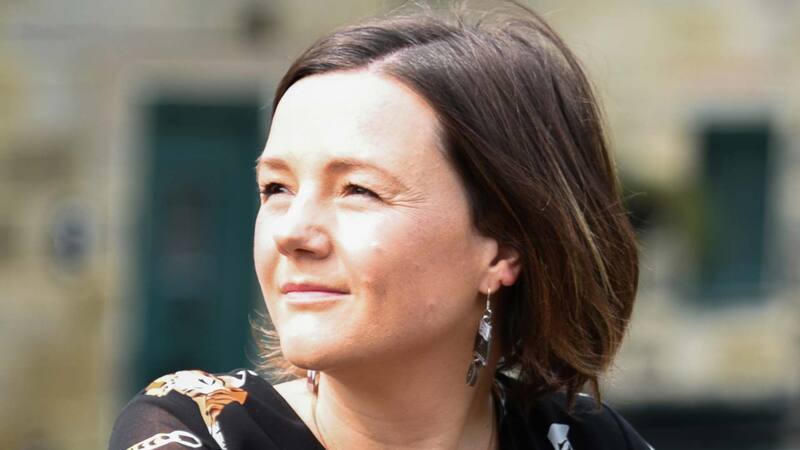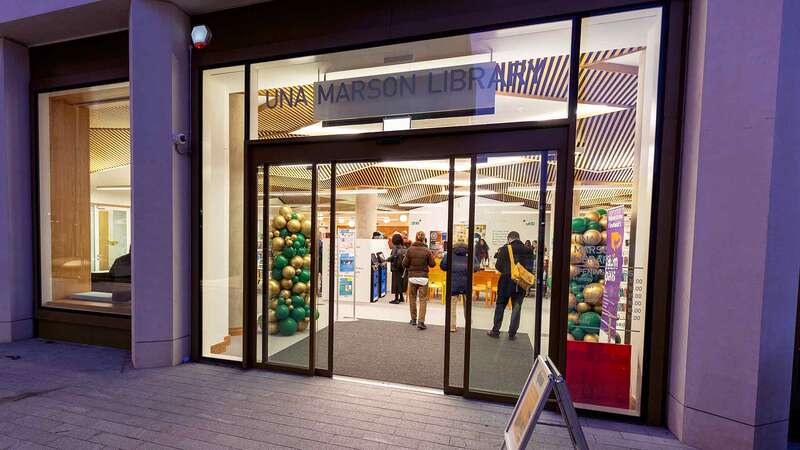You are viewing your 1 free article this month. Login to read more articles.
North of England publishers on obstacles to regional diversity in the book industry
At the Bradford Literature Festival (30th June–9th July), The Bookseller chaired a round-table discussion with independent publishers based in the north of England, the aim being to discuss the problems faced by such presses in a market dominated by London-based corporate publishers. In attendance were Philip Jones, editor of The Bookseller; Kevin Duffy, founder of Bluemoose Books; Claire Malcolm, chief executive of New Writing North; Bloodaxe executive director Simon Thirsk; Sanna Zahoor, publishing editor at Emerald Publishing; and Peepal Tree Press’ founder and managing editor Jeremy Poynting and operations manager Hannah Bannister. Dr Stephen May, relationship manager literature for Arts Council England (ACE), also attended, but was speaking in a personal capacity and not on behalf of ACE. The following is an edited transcript of the conversation.
Philip Jones: Can you set out some of the challenges you face as regional, i.e. not London-based, publishers?
Kevin Duffy There is an entrenched privilege at the metropolitan publishers and a sense that if you are not in London then you are not a “proper” publisher. If anything, it has got worse. They seem to think there is no readership outside London. Our latest book, The Gallows Pole by Benjamin Myers, was turned down by every major publisher, but it won the Walter Scott Prize.
[London-centrism] also impacts the chains, and despite what James Daunt says most of Waterstones’ book buying is still done out of Piccadilly. We offer the same ridiculous discounts as larger publishers and we still can’t get into any [retail] promotions. We wouldn’t exist without initiatives such as New Writing North, libraries and indie bookshops.
Hannah Bannister We have published about 400 books, we specialise in Caribbean and Black British writing. Access to the market is restricted by not being in London, but also because some of the lead times demanded by the media or by booksellers don’t work for us. We don’t have a team of publicists and marketing people, but neither do we have a stream of interns knocking on our door up here—even if we could afford to pay them. Individually, we feel fairly powerless to get the books noticed.
Simon Thirsk Our issue is how to increase the poetry market. There is a poetry-buying community, but for a general reader to buy poetry it is usually because it is about an emotion, such as grief. Our poets are like brands, but we can’t make them write “bestseller books”. It’s not like making a feature film. I have huge praise for Arts Council England, which has supported us. Without it, we wouldn’t exist.
You have to pay hugely, in the form of discounts, to get books into bookshops. It is a buyers’ market: retailers rule. The high street is in trouble, we know that, so we want to support them.
Claire Malcolm We do feel, really clearly, that we are ignored sometimes just because we are based in the north. Last year we took on management of the David Cohen Prize, and a lot of people said, ‘How will you run that in the north?’ When the winner’s press release went out, we rang the Times, and it said it didn’t open it because it came from us; from the north. The journalist thought it would be about something happening in the north. There’s an entrenched lack of interest.
Stephen May I have been won over by the argument that the north is badly served by publishers, and that northern readers and writers have been badly served. We provide a modest corrective to that. It’s a definite part of the remit to use the heft to pull away from London, so that the public get a full range of titles. So we do support risk up here.

Emerald's Sanna Zahoor with Stephen May of ACE
And the advantages [to being based in the north]?
Kevin Duffy It is cheaper, for a start. I moved out of London to do the publishing I wanted to do; there was more financial stability in the north. If literature is about anything, it is about finding new writers and new voices. I couldn’t afford to do what we do on London prices. We are spending money finding the authors, and in a sense that means we are the creative research and development of literary fiction in the UK.
Hannah Bannister We are able to have a very open door. We want the writers we publish to define what they want to write about. Often publishers are after a certain kind of book, to fit their lists, or to say something about diversity, but we want our writers to define that, and then we will try and find readers for them.
Stephen May What [ACE] provides here is also a safety net, in a sense giving writers a licence to carry on. We prefer to fund art rather than promotion, and that is what many of the regional presses are focused on.
Claire Malcolm The appetite for readers to engage with the writers who we tour up here—northern local writers, for example—is huge. The connection between the talent and who is reading is really clear to me: there is a lack of understanding within the big publishers as to what readers are looking for.
What are the constraints on your publishing?
Jeremy Poynting We are much more likely to take on books that require a lot of work; and some- times that crunches into things like scheduling. We are dealing with authors who are at much more of a developmental stage, and that takes time.
Simon Thirsk For authors and editors, publication day is the end of the story. But for publishers it is the start. Often small presses cannot afford people to do the work that is required. Or sometimes only to a limited extent. We do publicity, but advertising is really what I would call a cosmetic exercise: we have never placed an advert that has generated more money than it has cost.
Jeremy Poynting We know if we sell a book on to, say, Little, Brown—as we have done recently—it will sell 10 times what we are able to do [with it].
Kevin Duffy We take the risk, and then the [larger lists] come in and poach our authors. There should be some payback. If we are doing all the groundwork and they take all the benefit, that’s not fair.
Stephen May Goal one for us is to focus on talent, and next—sometimes to the detriment of goal one—is developing the audience. There is no point [developing talent] if we cannot also develop an audience for it.
Kevin Duffy ...But the writing creates the audience.

Hannah Bannister and Jeremy Poynting of Peepal Tree
Simon Thirsk There is a sense that we are inspired amateurs, whereas if you are based in London, people tend to know everyone and [publishing] staff have moved around within that world, so they have the contacts and the knowledge.
Claire Malcolm You don’t run into people [day to day]; you have to make an effort, whereas in London, you don’t. I’m not being chippy, it’s just the way things are. I get invited to a lot of things, but there is a cost attached.
Kevin Duffy We would like to get into more promotions, but we would worry about returns. The bigger publishers can soak up a loss, but if we go into a promotion and pile a lot of money into that, and it doesn’t work, we could be bankrupt. That is the difference.
Claire Malcolm What we hear is, “Why do you bother, if you can’t invest in books and make them hits?” It’s a question that’s not going to go away. We do it because we feel there is a cultural need, and it is important. Most arts events, if you get 2,000 people there, are seen as a success. If you sell 2,000 copies of a book it is seen as a failure.
Stephen May It is about print runs too. You can’t take the risk on the 100,000 print run to get into the supermarkets.
Claire Malcolm We are doing it to break even, but also because we can’t bear that these authors are being left on the sidelines.
Would you welcome a major publisher opening an office in the north?
Kevin Duffy They will pay lip service to the idea, but they will never do it. We put out a provocation at the London Book Fair as the Northern Fiction Alliance [which called on major publishers to set up a regional office in one of the cultural hubs outside London], but we’ve not heard anything.
Sanna Zahoor Emerald doesn’t have problems being based in Hebden Bridge, and that is an international business. If one of the big publishers did open an office in the north, it could be useful in changing their image. But it would also change the atmosphere, as the BBC’s move to Salford has.
Stephen May A commercial publisher could originate from here, in the same way as we had Factory Records. It definitely could happen. I could see a Nathan [Connolly] from Dead Ink Books, or Emma [Wright] from Emma Press, publishing bestsellers. If one of the big publishers opened up here, we would be supportive of the cultural regeneration that might happen.

Bluemoose's Kevin Duffy (left) with Simon Thirsk of Bloodaxe














